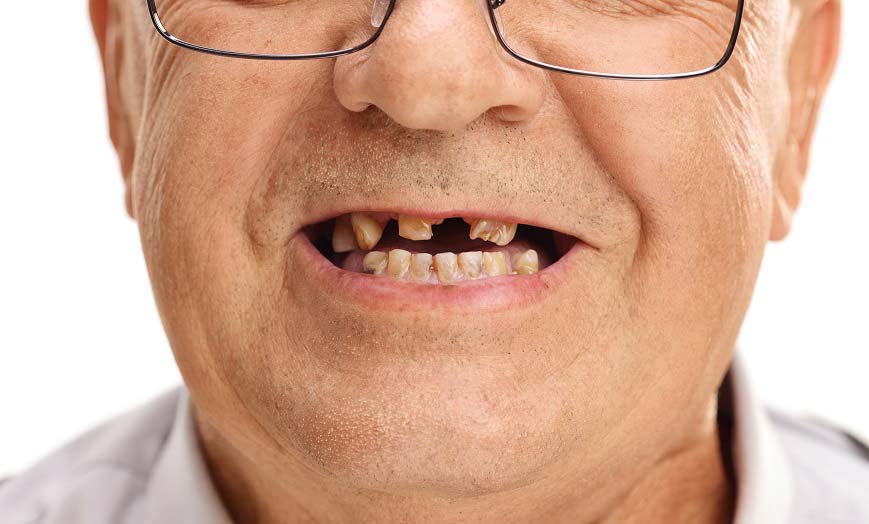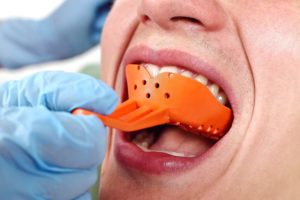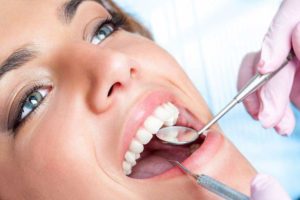
Let’s face it: anyone would be scared and embarrassed to appear in public without teeth. Seems avoidable, but you would be in that situation if you choose to have your new denture made the traditional way.
Suppose you have a few teeth left and they’re in bad shape that they can’t support a new denture, they would have to be extracted beforehand. If this is the case, your gums and bone would need time to heal before a new denture can be made.
This process may often take a couple of months. This means you have to spend a couple of months toothless!
On the brighter side, you really don’t have to go around without teeth for several months as you wait for your gums and bone to heal. Dental prosthetists have an alternative to all that: immediate denture.
An immediate denture is a complete or partial denture inserted immediately after the removal of your natural teeth – on the same day.
How Immediate Dentures are Made

You can also expect your DP to correct anything on your teeth’s alignment and other problems that could impede your health. The dental prosthetist often works with the help of a specialist technician, providing him (the technician) instructions on the number and nature of the teeth to be replaced with an immediate denture.
After which, the technician grinds your teeth (or tooth) off the model and simulate the extraction. He then makes the actual denture. The DP typically confirms that the right teeth have been added before the actual extraction. Your natural teeth are given anaesthesia, extracted and your denture is then put straight in.
Then you’ll need to set a review appointment, so that adjustments can be made to the denture if necessary.
Special Aftercare for an Immediate Denture

Dentures should be removed frequently as a standard care procedure. But this does not apply to immediate dentures. Instead, you should avoid removing them for the period that your DP told you. Removing them otherwise may cause bleeding. Keeping them in place also protects your gums and socket. Removing the fresh denture may cause slight swelling, which may result in the denture not fitting right back in.
In contrast, when you leave them in, the clot stabilises and helps prevent bleeding. The inflammation and swelling will also naturally subside.
Your first night with new immediate dentures will not be the most comfortable. Your bite will be slightly off and the fit may not be very ideal. Chewing will naturally be a little problematic. But rest assured that the discomfort and difficulty will pass. To assess the condition of the gums and socket, the DP often takes out the denture during your next appointment – usually the day that follows.
You’ll also get instructions regarding how to put in the dentures and take them out, as well as how to look after them.
Note that an immediate denture will not always have the best fit immediately simply because it is made before the socket and gums heal following an extraction.
The healing process affects the fit, therefore subsequent adjustments may be necessary. You are also likely to experience some pain and soreness.
Adapting to Immediate Dentures
For immediate dentures, it is highly important that you strictly follow the DP’s post-operation instructions. The healing process will heavily depend on how well you follow these instructions. You should also go to each follow-up appointment with your DP. Remember to have your immediate dentures on for at least 3 days after the surgery. This may be longer, depending on the condition of your socket and gums.
As you adapt to immediate dentures, it’s equally important to follow the instructions to oral hygiene given by your dental prosthetist. Part of these will be to constantly rinse your mouth with salty water to control harmful bacteria and facilitate the healing of your gums.
Immediate dentures also require that you reline them or fabricate an entirely new denture after four to six months. During this time, the healing process has been completed. You can always keep the immediate denture as a spare in case new dentures are made for you.
The relining is necessary to prevent tissue from growing into your denture and cause soreness and discomfort. Your DP can provide you with an estimate of the cost of relining your immediate denture. New dentures may often affect your speech. To remedy this, practice reading out loud or sing. This will allow your tongue to find its correct position so that you could speak clearly.
Benefits of Immediate Dentures over Conventional Dentures
Immediate dentures are an assurance that you’ll never have to walk around or appear in public toothless.
This alternative also allows your DP to easily duplicate the shape, arrangement and even the colour of your natural teeth since the immediate dentures are based on your natural teeth. An immediate denture inserted at the time of extraction also serves to protect the tissues and helps reduce bleeding.
Traditional dentures leave your mouth without teeth for some time for your gums and socket to heal. This means that you learn to speak clearly without teeth and later relearn to speak with dentures. Immediate dentures help you skip that headache. You can learn your speech patterns immediately and only in a single phase.
Overall, the immediate denture also helps keep you from experiencing the facial distortion that may occur as you’re waiting for a conventional denture.
Conclusion
Dentures are an amazing alternative to natural teeth. Nonetheless, if it comes to choosing between traditional and immediate dentures, the latter should be an instant go.











